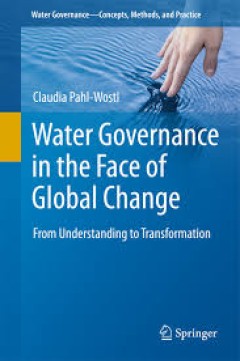Filter by

Lifespan development of human memory
"A Bradford book."An original approach to memory development that views memory as a continuous process of growth and loss over the human lifespan rather than as a series of separate periods. Until recently, the vast majority of memory research used only university students and other young adults as subjects. Although such research successfully introduced new methodologies and theoretical concep…
- Edition
- -
- ISBN/ISSN
- 9780262274203
- Collation
- 1 online resource (viii, 299 pages) :illustrations
- Series Title
- -
- Call Number
- -

Modernity and housing
Explores the social, cultural, and expressive history of housing during two periods: the large-scale developments in the 1920s, and the widespread modernist principles in the 1970s. A theoretical and historical inquiry, the text also aims to inspire the design of modern housing.OCLC-licensed vendor bibliographic record.
- Edition
- -
- ISBN/ISSN
- 0262367912
- Collation
- 1 online resource (408 pages) :illustrations.
- Series Title
- -
- Call Number
- -

Modeling neural development
"A Bradford Book."Studies neural development using computational and mathematical modeling. Modeling provides precise and exact ways of expression, which allow us to go beyond the insights that intuitive or commonsense reasoning alone can yield. Most neural modeling focuses on information processing in the adult nervous system. This book shows how models can be used to study the development of …
- Edition
- -
- ISBN/ISSN
- 9780262285438
- Collation
- 1 online resource (xiv, 322 pages) :illustrations.
- Series Title
- -
- Call Number
- -

Methods in mind
Experts discuss the wide variety of investigative tools available to cognitive neuroscience, including transcranial magnetic stimulation, neuroscience computation, fMRI, imaging genetics, and neuropharmacology, with particular emphasis on convergence of t.OCLC-licensed vendor bibliographic record.
- Edition
- -
- ISBN/ISSN
- 9780262283410
- Collation
- 1 online resource (ix, 382 pages) :illustrations (some color).
- Series Title
- -
- Call Number
- -

Readings in development economics.
These two volumes of readings attempt to bring some degree of structure to a relatively diffuse field. Because of the sheer volume of high-quality work in development economics research, they are intended as a sampling of work at the frontier of the field, rather than as a comprehensive overview. Volume II: Empirical Microeconomics focuses on empirical work. Topics covered include the relations…
- Edition
- -
- ISBN/ISSN
- 0262267705
- Collation
- 1 online resource (449 pages).
- Series Title
- -
- Call Number
- -

The working landscape :founding, preservation, and the politics of place
Based on the author's Ph. D. thesis, Harvard University, 2000.In America today we see rampant development, unsustainable resource exploitation, and commodification ruin both natural and built landscapes, disconnecting us from our surroundings and threatening our fundamental sense of place. Meanwhile, preservationists often respond with a counterproductive stance that rejects virtually any chang…
- Edition
- -
- ISBN/ISSN
- 9780262269803
- Collation
- 1 online resource (xvi, 425 pages).
- Series Title
- -
- Call Number
- -

Web Programming with Dart
Web Programming with Dart is for programmers who want to master the new Dart programming language from Google, and also web developers who want to understand how Dart can integrate perfectly with HTML5 and CSS3. With this book you will understand the ins and outs of the language, how the tools work, and how to get the most from the core functions and libraries. Web Programming with Dart is a…
- Edition
- -
- ISBN/ISSN
- 978-1-4842-0556-3
- Collation
- -
- Series Title
- -
- Call Number
- -

Web Development with Go Building Scalable Web Apps and RESTful Services
Take a deep dive into web development using the Go programming language to build web apps and RESTful services to create reliable and efficient software. Web Development with Go provides Go language fundamentals and then moves on to advanced web development concepts and successful deployment of Go web apps to the cloud. Web Development with Go will teach you how to develop scalable real-wor…
- Edition
- -
- ISBN/ISSN
- 978-1-4842-1052-9
- Collation
- -
- Series Title
- -
- Call Number
- -

Water, Politics and Money A Reality Check on Privatization
This book reveals all that can potentially happen when a private company takes over a local water supply system, both the good and the bad. Backed by real life stories of water privatization in action, author Manuel Schiffler presents a nuanced picture free of spin or fear mongering. Inside, readers will find a detailed analysis of the multiple forms of water privatization, from the outright…
- Edition
- -
- ISBN/ISSN
- 978-3-319-16691-9
- Collation
- -
- Series Title
- -
- Call Number
- -

Water Governance in the Face of Global Change From Understanding to Transfor…
This book offers the first comprehensive treatment of multi-level water governance, developing a conceptual and analytical framework that captures the complexity of real water governance systems while also introducing different approaches to comparative analysis. Applications illustrate how the ostensibly conflicting goals of deriving general principles and of taking context-specific factors in…
- Edition
- -
- ISBN/ISSN
- 978-3-319-21855-7
- Collation
- -
- Series Title
- -
- Call Number
- -
 Computer Science, Information & General Works
Computer Science, Information & General Works  Philosophy & Psychology
Philosophy & Psychology  Religion
Religion  Social Sciences
Social Sciences  Language
Language  Pure Science
Pure Science  Applied Sciences
Applied Sciences  Art & Recreation
Art & Recreation  Literature
Literature  History & Geography
History & Geography